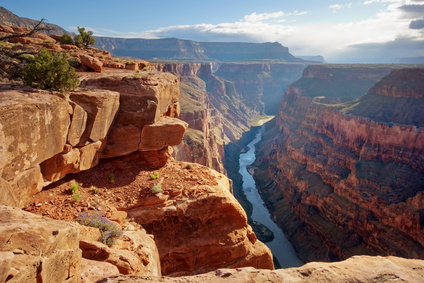 Remember all the research you did in school when you had to write a paper or create a new project? Hours spent writing out your notes because we couldn’t highlight encyclopedias and we had to avoid plagiarizing like the plague. Ugh, tedious, boring work just so we could get a good grade.
Remember all the research you did in school when you had to write a paper or create a new project? Hours spent writing out your notes because we couldn’t highlight encyclopedias and we had to avoid plagiarizing like the plague. Ugh, tedious, boring work just so we could get a good grade.
Guess what? If you want to become a published author those years were not in vain! And whether your story takes place on another world, in another country, or in another time you must do your research BEFORE you put ink to paper or fingers to keys. Your story must be based on facts, accuracy, and attention to detail; otherwise your reader may do their own research and, if what you say is not true then you will lose credibility and likely a reader.
An Example Of Inspirational Research
When I was beginning the outline for my second book I had a broad idea in mind and had started my character biographies. I knew what I wanted the book to be about and who the protagonists and antagonist would be.
But I didn’t have a clear idea of my setting and what would be the overarching conflict that would pit them against each other (besides the good over evil theme). I needed to create this conflict, find something that both sides wanted and place this objective in a believable setting and then “let them have at it!”
Gold…now there’s an incentive. Because I was writing a Western why not research a gold rush, a gold mine, or even lost wagon trains packing gold. And I struck gold…
Searching online for stories about lost gold I quickly came across a smorgasbord of ideas and interesting characters from times past. But one in particular jumped out at me that had an intriguing story which included Spanish treasure and deserts, two ingredients for success in many Western novels.
After digging deeper I soon had where the gold was hidden (down to the desert canyon), who was guarding it, and what the main characters needed to do to get it…and if they win or lose!
Put Those Research Skills To Work
A great thing about the internet is that you don’t have to write everything down like you did with those cumbersome encyclopedias. Now you can save the link or even copy and paste the passage you want right into a working document. But what you cannot still do is plagiarize, that is still a no-no from yesteryear.
It may be useful for you to print your research out and take a highlighter to it or simply just write out bulleted points that you can reference later. Find what works best for you. But what I recommend you do is to follow your investigative nose and don’t interrupt the flow of your research.
This works best if you’re researching online. Copy links as you go or open new tabs as you do your digging. You need to have some way of knowing where you are before you move on to the next gold nugget…or you run the risk of not finding your way back. This is an exciting way of doing research and it tells you that you are on the right path.
For instance, when researching Spanish gold in the desert there was a picture of a canyon oasis that was almost a side note of the page I was on. I went “Ooo…interesting”, and hit the open in a new tab button. And now I had a major setting for my book but I still had the link to the Spanish gold. And yes, I combined them in my story.
Let’s not forget the “old way” of doing research – stacks and stacks of books all laid out around you in a semi-circle of golden nuggets (sorry, sort of fixated on golden images right now). Scurrying from book to book, jotting notes, highlighting (if you’re fortunate enough to own it), there’s still something invigorating from researching your book from other books.
Research Leads To Vision
The greatest thing about doing research is the vision, the scenes, it brings to your book. It’s not just about making sure that such-and-such really happened in this year or in this place. It’s also about finding out how these facts can inspire your story.
 Look how quickly I found my character’s objective and one of the settings for my book just by researching Spanish gold. And that all happened within the space of an hour which included real-time pictures so I could see where my characters were and the type of struggles they would endure to survive a desert climate. Oh, it also gave me some insight into the quirkiness of one of my characters and why he would be so willing to live in that canyon guarding that gold from all trespassers!
Look how quickly I found my character’s objective and one of the settings for my book just by researching Spanish gold. And that all happened within the space of an hour which included real-time pictures so I could see where my characters were and the type of struggles they would endure to survive a desert climate. Oh, it also gave me some insight into the quirkiness of one of my characters and why he would be so willing to live in that canyon guarding that gold from all trespassers!
Way better than high school or college research papers (boring), doing the research for your book is a time of adventure and discovery as well as learning about the setting your story takes place in.
And guess what this does to plagiarism? Makes it non-existent! You’re not rewriting that which is already written – you’re writing your vision of the land and people you’ve found and this includes obstacles your characters need to overcome just to survive – antagonists notwithstanding!
Start And Finish With Your Research
It only makes sense that when you’re beginning a new story that you take the time to do your research. The facts and realism of what you find will become integral to your story as you’re writing it. You will better understand the times and living conditions of your characters as well as be able to incorporate real settings into your plot.
But did you know that your research is also very useful when you are editing your book? Sometimes it’s easy to get off point when you actually write a couple of hundred or more pages. And when you go back to edit you begin questioning if you got your facts right.
If you begin and end your book using the same – accurate – information then your story will remain accurate and consistent as well. So if you wrote, as I did, that a certain town became a capital in a specific year then you can double-check your facts when your book is complete.
And cite your sources in your research. Make a note of where you got the information that you’re basing your book upon. That way, should you need to go back for your own peace of mind or to rebut a naysayer you can show where you got your information. We used to include these as footnotes or references in our school papers but you can’t do that with a fictional novel.
Research Is Fun – Really
Enter the research stage of your book with your writer’s mind: meaning, you’re not doing this for a grade you might achieve but for the creative value that flows. You’re researching so your story is accurate…insofar as it needs to be! Dates, land descriptions, and proper spelling are essential for a successful novel.
But we as writers need also be ready to let a sentence or a paragraph spin us off into a scene of possibilities and challenges, much like my canyon scene did for me. I remember thinking, “Wouldn’t it be cool if…” And I made it so! Because the sentence or the picture of what I was researching evoked so many interesting ideas for my story, I knew these were what I was looking for.
And be ready with a notebook or your mouse to copy and paste because these ideas often come unbidden. You MUST take the time to flesh out your idea before you lose it. Keep your mind open to the possibilities of what your research will show you…why else are you doing it?